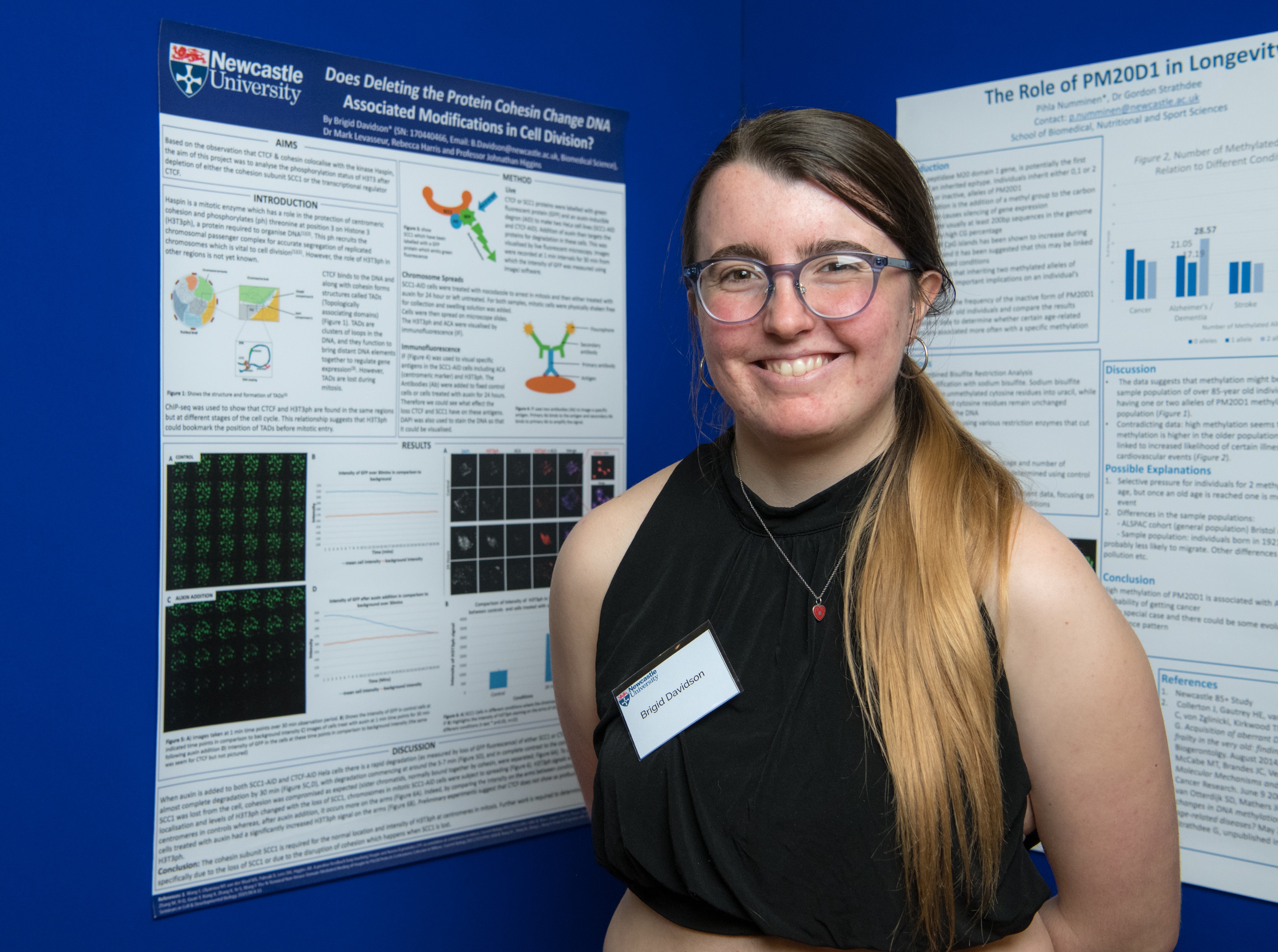2019 participants
 Brigid Davidson
Brigid Davidson
For cells to divide correctly, DNA in the form of chromosomes must separate equally into the two daughter cells so that they are both identical to the mother cell. If this occurs incorrectly, then cells will either die or they may behave abnormally (eg causing cancer development or Down Syndrome). Haspin is an enzyme which modifies chromosome behaviour during cell division to ensure correct separation of chromosomes. Here, we hypothesised that a chromosome protein (Cohesin, SCC1) brings Haspin to the right place on chromosomes. Therefore, our aim was to see how Haspin was affected when SCC1 is no longer present in cells. To do this we used specific cells which were engineered to destroy SCC1 when exposed to a plant hormone. The results showed that Haspin activity was affected when SCC1 was no longer present. These findings help us understand what might go wrong during cell division.
Funding Source: Newcastle University
Project supervisor: Professor Jonathan Higgins
